Getting Ready for the First Day of School
By Rebecca Goldfine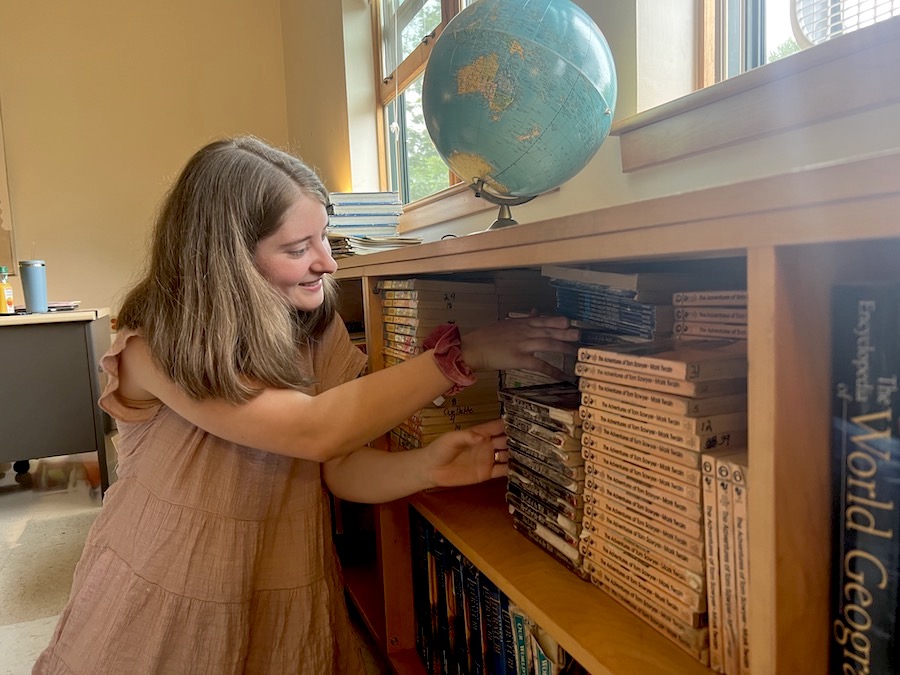
On Becoming a Sixth-grade English and Social Studies Teacher
In early August, Emery's classroom had bare walls, a few boxes of unpacked books, and orderly rows of pupils' desks (an arrangement she hopes to change). But the first day of school was still twenty days away.
"It's a work in progress!" Emery said, looking around. "It's a nice ease-in process." As she walked around the boxy space, talking about her plans, the classroom in her imagination became vividly clear.
Prepping the room, creating inviting nooks, filling it with books, and dedicating wall space to student work "is a way I can show my students I care," she said. "The room will be energizing, but it'll be cozy, too."
Each spring, Bowdoin Teacher Scholars graduates a new cohort who typically find school positions that start the following autumn. After completing the rigorous spring-semester program, the soon-to-be-teachers have a summer to prepare for their new jobs, draw up lesson plans, and set up classrooms.
In early June, Saint Dominic Academy (her alma mater) offered Emery the job of sixth-grade English and social studies teacher. One of her first acts when she entered the space was to haul in several floor lamps, which emit a soft orangey light from different corners of the classroom.
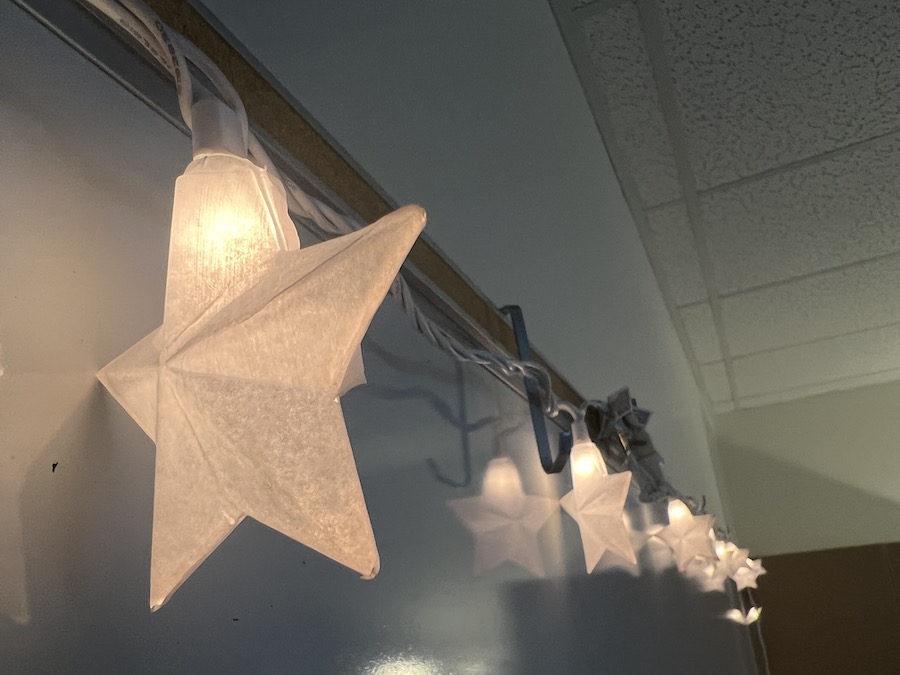
She also tacked up a string of glowing stars around one of the whiteboards. She believes this alternative lighting scheme creates a comfortable and welcoming space for students to enter, sparing them the harsh glare of the overhead fluorescents.
Another of her preliminary adjustments was to shift the teacher's desk to the back of the room. "I don't need them staring at their teacher all the time," she said. "Plus, it's sneaky. I can see what they're doing on their Chromebooks!"
One of the tall floor lamps will illuminate a reading corner with a soft carpet and bean bags or comfy chairs. She's filling the adjacent bookshelf with both her required reading—all great novels and memoirs—and a broad assortment of books students can borrow any time.

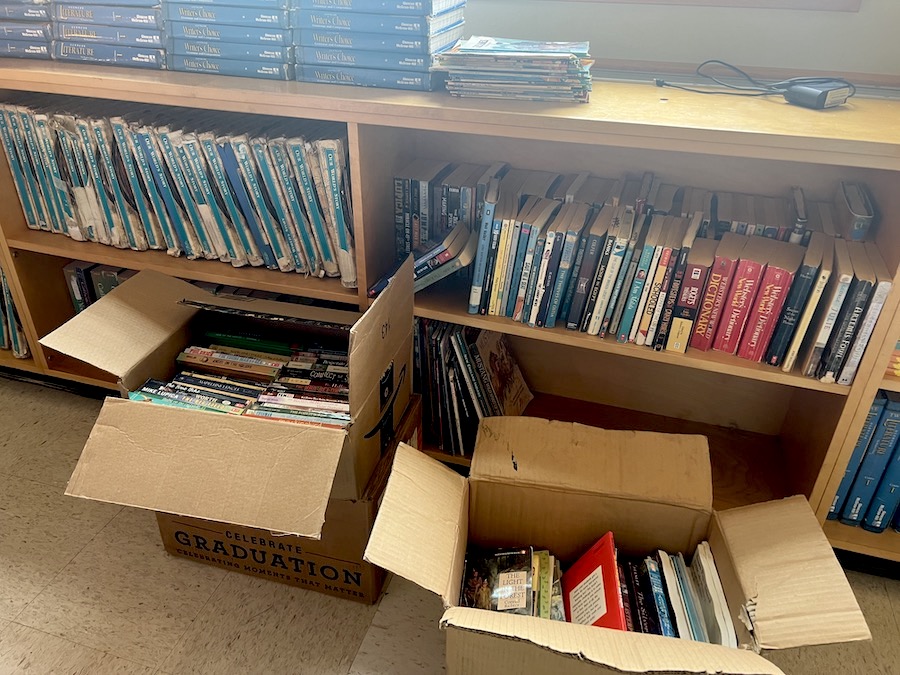
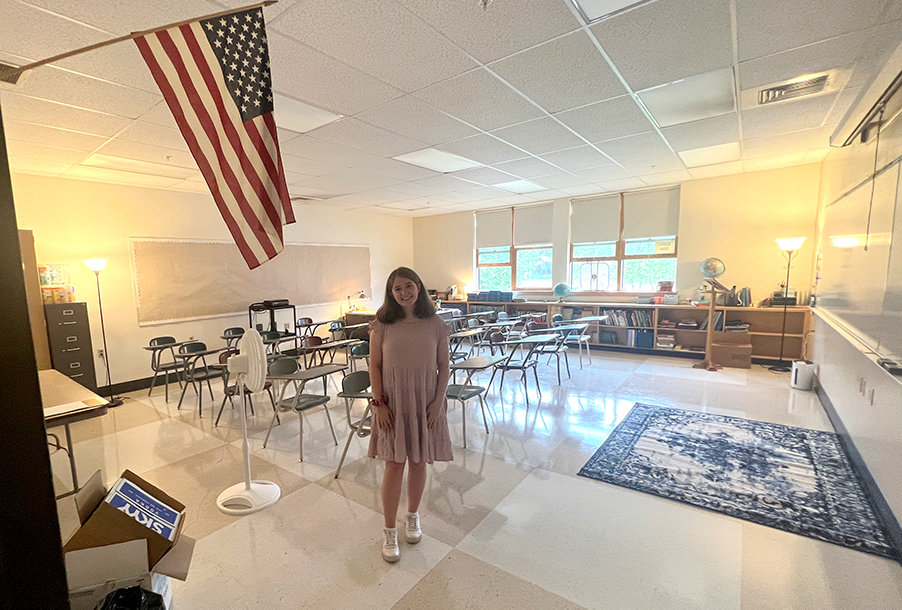
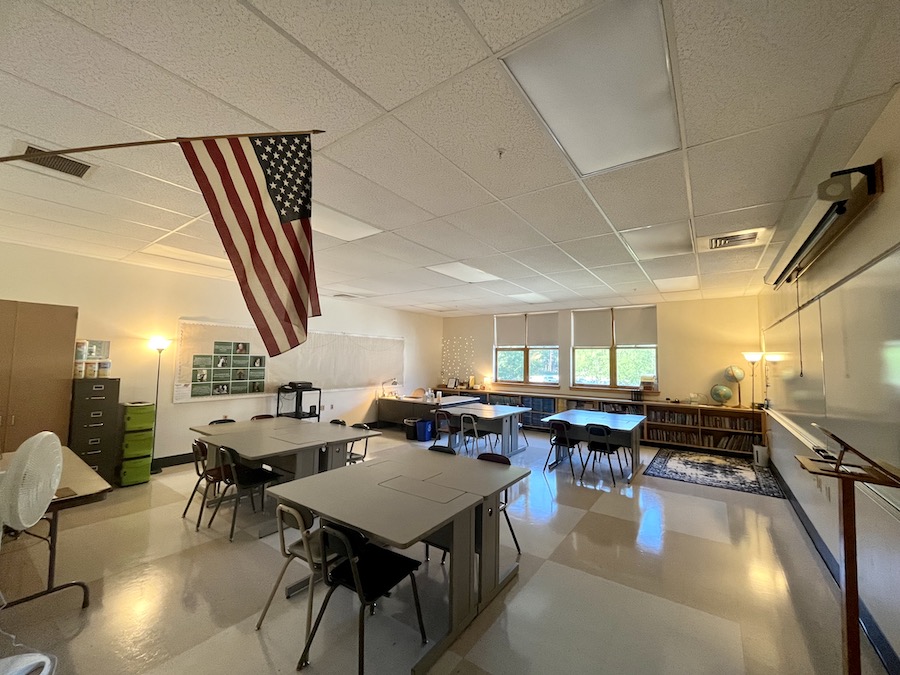
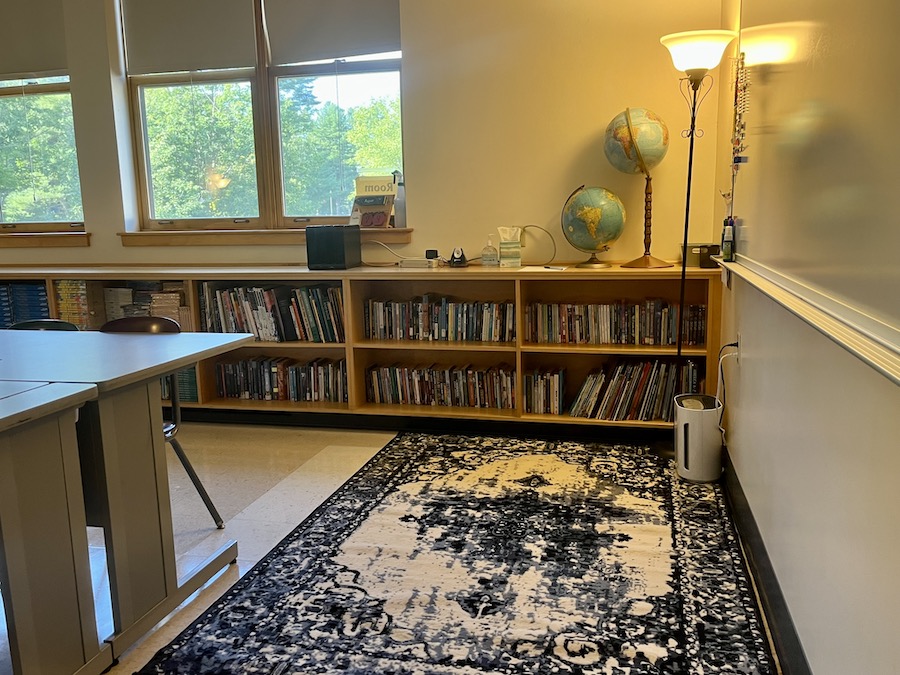
Emery, who grew up in the Augusta, Maine, area, said she's always loved literature—one of the reasons she she gravitated to the English major at Bowdoin.
As for her education major, she had first mulled over the idea of becoming a teacher in high school, partly as a way to nurture the love of learning that she worries some students lose as they progress through grade school. When she was a young student, she recalls "losing sight" of what she had originally loved about school, finding her joy replaced with a fixation on studying as a means to an end—to get into a good college and then get a good job.
At Bowdoin, she was surprised and excited when she came across the Bowdoin Teacher Scholar program on the education department website. It clinched her career decision, and she enrolled as an undergraduate (the program also accepts postgraduates).
"I had just assumed you had to do certain things and take certain steps after college to do whatever is necessary to become a teacher, which I was okay with, but when I realized that I can spend that time here and jump into this and be in classes and engage in student teaching and be part of a cohort of people doing the same thing, I was like, 'This is something I want to do, so why not now?'" she said.
She's excited to be back at the primary school she attended for a few reasons, one of them being its traditional standing in the community of Lewiston/Auburn, which historically has had a large population of Catholic French Canadians. "There are lots of mémés and pépés here," she said, referring to the French endearments for grandma and grandpa. Many of the children are descendants of those early immigrants to Maine.
She also appreciates the role of Catholicism at the Academy. "The combination of faith and reason is one of the beautiful parts about this school," she said.
One way she hopes to keep the joy of learning alive in her students is to reduce the pressure they might feel to perform. "I want them to know I'm here to help them and not to penalize them," she said. "I'm here to help them learn and grow, and I hope they'll see the fun in what they're doing."
The school, which houses grades six through twelve, is small — just forty or so students per class. She's one of two sixth-grade teachers. One lesson she plans on applying from BTS is the importance of leaning on your community, and to reach out for help when you need it. "We talked a lot about who your community is, and who you can ask questions of, and that questions are okay," she said. She considers her community to be both her fellow teachers at the Academy and her BTS cohort.
Supportive mentors can be especially helpful when experimenting with novel approaches to lessons, an openness that Emery hopes to embrace as a teacher. "I want to give myself the freedom to take risks, to try new things," she said. "My biggest wish is to keep an open mind and let creativity flow."